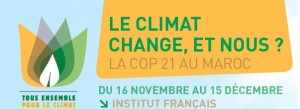 Morocco is fully aware that global warming and climate change are one of the greatest threats to mankind and is therefore actively involved in the international efforts to address this global issue.
Morocco is fully aware that global warming and climate change are one of the greatest threats to mankind and is therefore actively involved in the international efforts to address this global issue.
Morocco’s commitment to help address climate change was renewed by the country’s ruler, King Mohammed VI, in an address before the UN general assembly in New York.
Pointing out that climate change “is one of the greatest threats to mankind,” the king recalled that since Morocco participated in the Rio Summit in 1992, it “has worked hard to develop a national environmental policy that rallies all the stakeholders concerned, while ensuring proper use of the financial resources earmarked for issues relating to climate change.”
In the address that was read out before the General Assembly by his younger brother, the King recalled in this vein that his country adopted the National Charter for the Environment, launched the Green Morocco Plan, and started implementing an ambitious solar and wind renewable energy program, which aims to cover 42% of Morocco’s energy needs by 2020.
“In 2015, fulfilling its obligations in the field of environmental protection, the Kingdom of Morocco officially presented its ‘Intended Nationally Determined Contribution’ which includes strong, ambitious commitments designed to contribute to the establishment of an equitable, solidarity-based international environmental system,” the king pointed out in his speech, recalling that Morocco is proposing that Marrakech host the 22nd Conference of the Parties to the United Nations Framework Convention on Climate Change in 2016.
The Moroccan monarch reiterated in this respect his country’s support for the efforts made by France to achieve a global, comprehensive, sustainable, balanced and legally binding agreement at the Paris COP21, scheduled from November 30 to December 11.
“For this reason, we view the Paris and Marrakech Conferences as two complementary milestones in our attempts to achieve a qualitative transition in the fight against climate change and avoid failures which, in the past, were the result of poor stakeholders’ coordination and cooperation,” he said.
He also recalled the “Tangier Call” launched on September 20 from the Moroccan northern city of Tangier for collective and decisive, solidarity-based international action on climate change.
The call was jointly launched by King Mohammed VI and President of France François Hollande who was visiting the North African country.
The King who underlined that his country has been “at the forefront of African nations which have adopted an efficient national plan in the field of renewable energy,” pledged that Morocco, consistent with a longstanding solidarity-based policy, “will spare no effort to make Africa’s concerns known and its voice heard, together with those of developing small island states, which are the most vulnerable to climate change.”
The Intergovernmental Panel on Climate Change (IPCC) pointed out in its 2014 report that climate change will amplify existing risks and create new risks for natural and human systems and that the risks are unevenly distributed and are generally greater for disadvantaged people and communities.
The report predicted that by 2050, Africa will be the most badly affected continent by climate change.
